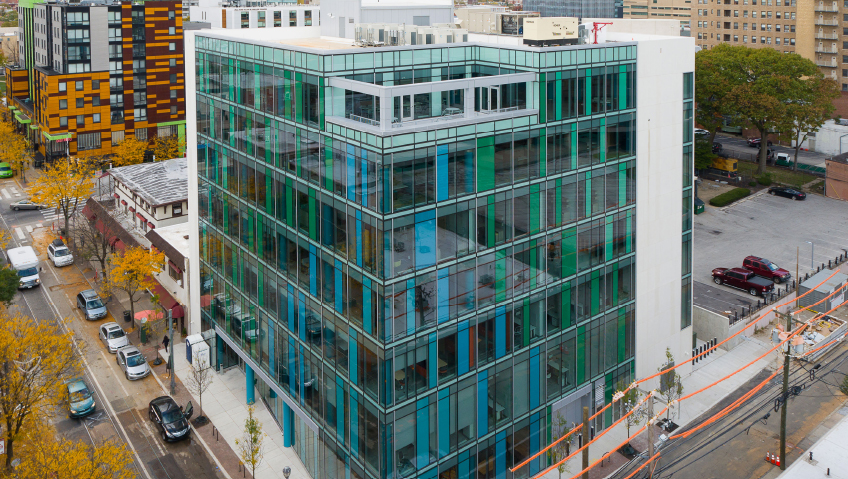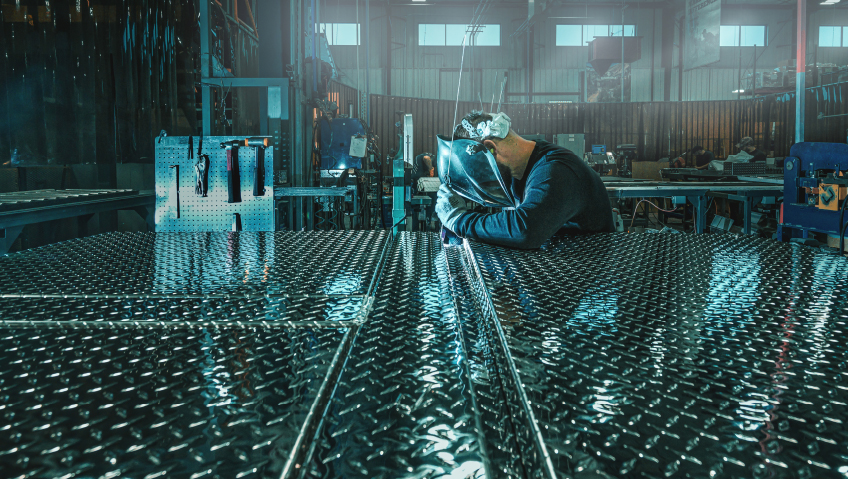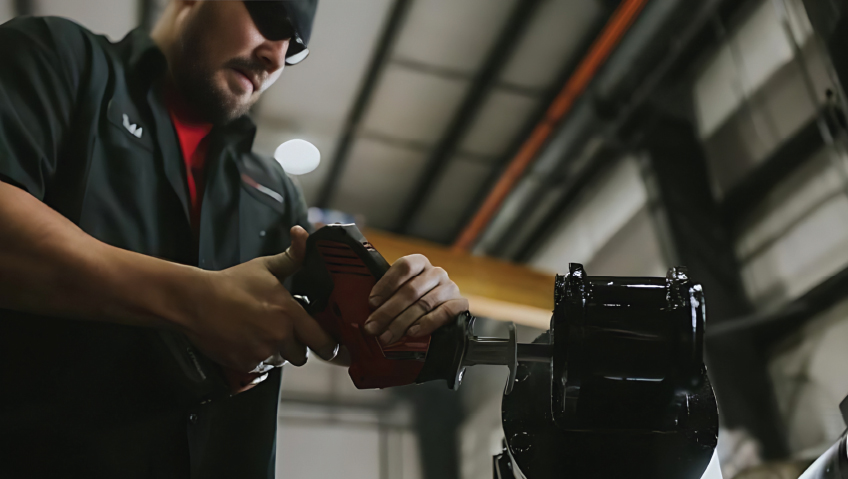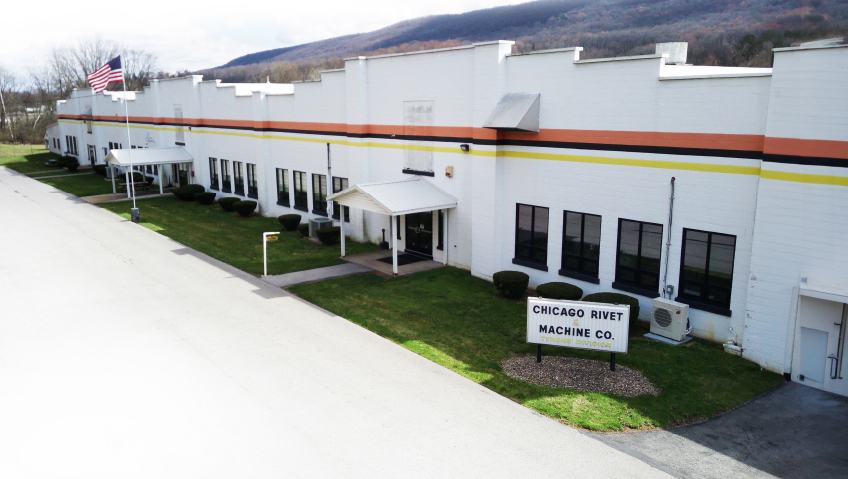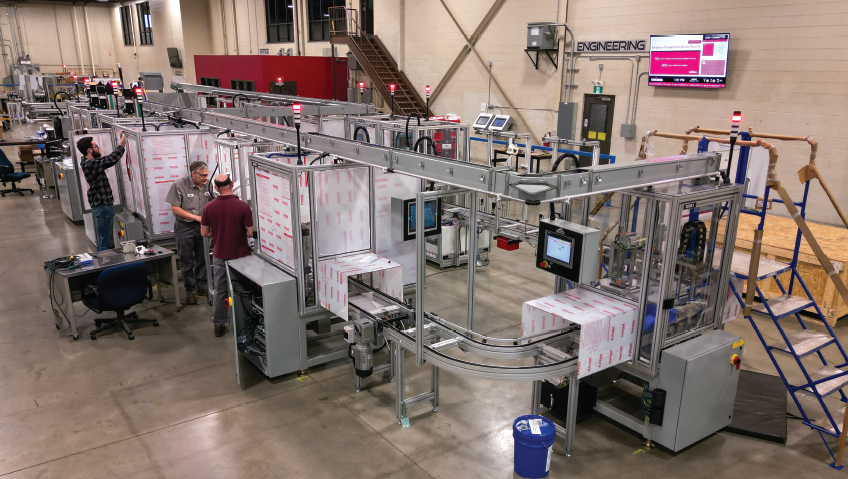For 60 years, Architectural Precast Innovations, Inc. (API) has been committed to delivering high quality, custom prefabricated architectural precast concrete building components to diverse customers and market segments. Exceptional craftmanship, commitment to sustainability, and a relentless drive for innovation are just a few qualities API is known for. The company has built its reputation one award-winning project at a time, completing projects as small as signage to more complex structures like One Willoughby Square, Brooklyn, New York, a 2024 PCI Design Award Best Office Building and Sustainable Design Award Honorable Mention.
Heading toward its seventh decade in business, API was founded in 1962 by a block manufacturer that started this company to fabricate concrete lintels. From there, the company expanded, changing hands thrice before Steve Kenepp, President and CEO, purchased the company in 2015. API has a long history of precasting, with precast/prestressed concrete building components for parking garages being made in its facilities in the 1980s.
The company went on to make building components for air traffic control towers, airport terminals, and stadiums commercially. Its steel shop opened in 1983, and a new plant followed a few years later. Today, its facilities span 30 acres, with about 14,000 square feet of fabrication area, including a form fabrication shop and steel fabrication shop. Everything happens here, with the exception of galvanizing [for steel components], which happens off-site.
No stranger to change, API is also a company that strives to evolve. Now, it is moving toward design-build and design-assist projects by customer request. Collaborating with owners, developers, and designers, the team helps establish budgets, schedules, and efficiency. The company is comfortably equipped for product development and process improvement, which drives innovation for the company and industry.
To this end, investment in technology has allowed API to incorporate cutting-edge methods with modern materials to deliver a service that keeps customers in the loop and engaged with modeling software in ways that were not possible in the past. A recently acquired computer numerical control (CNC) machine also expands its form building capabilities. The CNC machine is also used to process foam insulation for insulated panel production. API will also soon employ projection lasers in its casting process.
“Laser projection will help us increase the tolerances in our products. It will also help improve the efficiency and construction time,” says Kenepp. “I’m pretty excited about that. It will enhance our production capabilities and help with efficiency.”
Certainly, precision goes into every project and currently, the team is collaborating on a design-assist brick cladding project with Mount Nittany Medical Center in Pennsylvania. The medical center is currently constructing a new patient tower at its existing premises on Park Ave, State College, Pennsylvania. Moreover, there is a series of data centers among the company’s upcoming projects.
For Kenepp, API’s success rides on the quality of his team of around 80 people, many of whom have been with the firm for decades, often straight out of school, some joining as many as 30 and 40 years ago. While entire families and multiple generations work here, people’s tenures remain impressive too. Even the Vice President of Operations has been with the firm for over 50 years, and the Operations Manager started working here during his high school years.
“The people come before the business. It’s really neat to have a group of people that have worked together for so many years. They’re very dedicated people. [In this business], people are our most valuable assets,” Kenepp says.
To keep morale high, an employee engagement committee ensures that everyone has enough time to interact and keep their interpersonal relationships healthy. So that employees remain apprised of the latest developments in the field, the company encourages further training, with support, of course. In addition, leadership respects employees’ personal and family obligations. Holding a firm belief that it is the unspoken mandate of companies to serve the communities in which they do business, Kenepp expresses joy in sponsoring local community events, including high school bands, Little League baseball, and other local charity events doing good for the community.
At API, relationships matter. Serving a 250-mile radius from its plant in Middleburg, Pennsylvania, this architectural precast supplier to the construction industry knows that longevity means doing the right thing consistently and becoming a partner to its customers.
“While we are a manufacturer, our company is as much about the people as the product. We work in more of a family environment here. Culture has a lot to do with what we do,” says Kenepp.
Well known for its high-end architectural panels, the company is proud that most of its sales are of attractive, high-quality custom fabricated components, available in a large selection of custom shapes, colors, and finishes. In addition, it is known for its insulated precast wall panels which are highly sought after for warehouses, data centers, health care facilities, and institutional projects—building types that Kenepp notes are on the rise. The shift toward incorporating this product is driven by modern building demands for energy conservation, reducing building operating costs over the life of a structure.
What does precast concrete offer specifiers and clients and why is it chosen for such a diverse array of projects? Precast meets construction goals of constructability, schedule, and cost, and elevates aesthetic expression. Additionally, designers turn to precast for sustainability attributes such as minimizing construction waste—because components are fabricated off-site—while also reducing impact to surrounding areas. This outstanding building material also delivers excellent thermal performance and fire resistance.
“If you look at long-term durability and resilience of precast concrete, these buildings will easily go from 50 to 100 years,” Kenepp adds, explaining that when precast concrete is replaced, it’s usually to update an overall look rather than because it is structurally unsound. Therefore, performance and longevity are, as a rule, not an issue with this product—these days even less so, as precast elements are continuously improved and developed to protect people and property, as in the case of storm shelters.
Other examples of the latest in precast product innovation include addressing security concerns. Anti-terrorism products are composed of highly engineered precast concrete building components custom-engineered to offer blast loading protection in buildings belonging to the federal government and other buildings requiring safe haven for the general public. “Our connections, reinforcing, and panels are all designed to withstand whatever forces people are looking to protect against,” Kenepp says.
API’s quality speaks for itself, winning numerous awards across many building types over the years. As a PCI-AA-certified architectural precast concrete fabricator, API is capable of delivering the highest level of complexity, crafting uniquely beautiful, sculptural, and effective design solutions.
To illustrate the strength of precast concrete, a boardwalk API built along Long Beach, New York remained undamaged by Hurricane Sandy, even while another boardwalk was entirely destroyed.
“When we installed the last piece of this boardwalk, the people in the community came together in a big gathering to watch. It was amazing. There were a lot of hugs, tears, and all kinds of good stuff,” Kenepp says, smiling and noting how good it feels to return meaning to a community to which such infrastructure gives so much pleasure.
API is also grateful for its rewarding relationships with the small and large contracting partners with which it regularly works. Whiting-Turner Contracting Company, Structure Tone, Gilbane Building Company, and Turner Construction are but a few.
The industry, like most others, is changing, and such industry shifts are also impacting how the company works. Building sites are becoming increasingly cramped, and logistics and execution are more precision-planned than ever. As a firm known for being schedule-driven and doing what it takes to secure successful delivery of its projects, API is increasingly trusted by customers to get their jobs done well, on time, and within budget.
While rising costs are turning building trends toward more modular building in high-density urban areas, the demand for API’s work is also growing. The great advantage of its facility comes to the fore as the company can execute high-accuracy work in a controlled environment, giving the team control over aspects like weather that cannot be controlled on traditional job sites. This is why prefabrication means speed. As on-site assembly takes a fraction of the time of traditional construction, earlier occupancy is just one of the pluses that clients appreciate about this discipline.
“Modular construction is a trend that is just going to become bigger and bigger, and customers are yet to come up with anything we can’t build,” Kenepp says. As this team of problem solvers heads into the future, they continue holding to their maxim: if you can draw it, they can build it.

